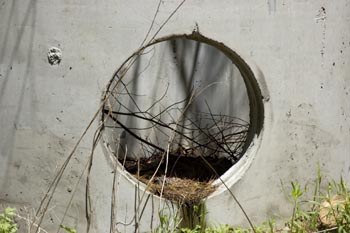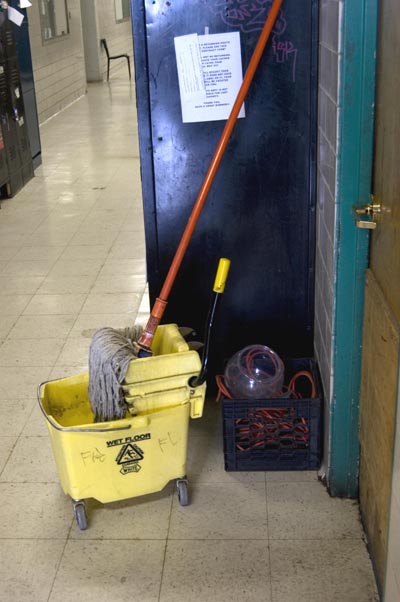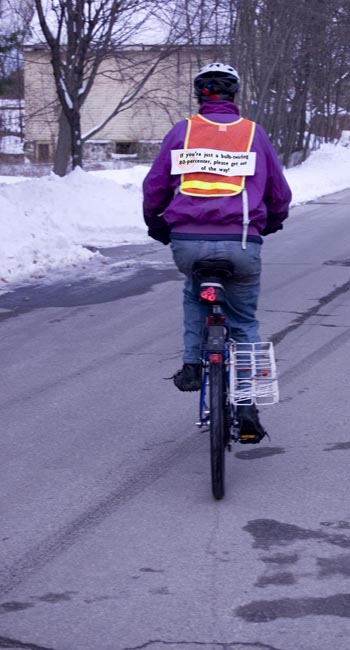Fri 25 Jan 2008
The Killer Barbie Doll
We are awash in a world of unintended consequences.
From a historical perspective, we didn’t intend to poison the atmosphere with carbon dioxide and the many other noxious by-products of fossil fuels. We didn’t even know about much of it. Rather, we blithely sought to build factories and bridges, weave cloth, travel the world in engine-driven vessels; aggregation of wealth for the very lucky very few was in there somewhere too. That nasty dog, pollution, just seemed to nip at our tails at every step of the way.
and the many other noxious by-products of fossil fuels. We didn’t even know about much of it. Rather, we blithely sought to build factories and bridges, weave cloth, travel the world in engine-driven vessels; aggregation of wealth for the very lucky very few was in there somewhere too. That nasty dog, pollution, just seemed to nip at our tails at every step of the way.
Similarly, on a personal level, today we don’t indend to support slave labor, destruction of forests, clogging the oceans with plastic, wars for oil, or the deranged climate that could end it all. But support it we do, every day in every way.
These connections are rather difficult to understand, not because of their intrinsic mystery but because our culture screams incessantly that all of our folly is not only fine, it’s essential to life itself. We appear to have been conclusively convinced, having fought inconceivably destructive wars and developed weapons of mass destruction just to maintain our way of life. Meanwhile, the ceaseless onslaught of consumer messages lulls us into thinking that our behavior is just fine.
But just behind this flimsy curtain are people who have been forced from sustainable living by our “free trade” agreements. Who work eighty-hour weeks for little pay to provide us with non-essential bobbles. Who suffer from toxic environments that we hesitate to allow at home but have exported to the third world for convenience. All for fancy handbags, cheap clothes, greasy hamburgers, or cruises to Alaska. Things we don’t need, and that often contribute little to quality of life and gross national happiness (1).

The average lifespan of stuff, from purchase to dump, is short. Just consider how long you actually use the things you buy, or if you do use them regularly, how long they last. We are beginning to understand how damaging the end result is: we’re banning landfills and trash burning, and moving towards more recycling (2). But we don’t seriously address our consumption at the basis of the cycle, and all the human and environmental damage along the way.
Chris Jordan, a Seattle artist and photographer, has created a remarkable series called “Running the Numbers: An American Self-Portrait,” in which he takes a graphic look at our off-the-charts wastefulness. I’ve mentioned his work before – if you haven’t seen it yet go to the website ASAP:
http://www.chrisjordan.com/current_set2.php.
As “Running the Numbers” so clearly depicts, the magnitude of our blind indulgence is stunning: we are systematically eliminating our very life support systems as we have already done to so many extinct and soon-to-be extinct species. For trinkets, for nothing more than a temporary endless supply of entirely unnecessary and mostly useless and quickly discarded stuff.
Is our silly stuff worth it? When it comes to satisfying, peaceful, joyful, fulfilling lives, most of the consumptive stuff is silly in perspective, it’s so terribly temporary at best. Is it worth it? How do we rationalize our behavior? Do we deny the magnitude of the consequences? The causality? How long do we continue to say, “My personal contribution is so small that it doesn’t matter what I do?”
I personally sold my car last summer, ride my bicycle almost everywhere, stopped using my clothes dryer, live below the official poverty level, and think about the unintended consequences every time I eat a 3,000-mile banana . . . yet I still eat the banana.
 How do I – and we – make that transition. How do we get to survivability and sustainability, what personal emotional steps must we take? How do we give up our cherished but deeply flawed way of living in the world, replacing it with a sustainable existence? As Richard Heinberg has recently stated, “if we are all in various stages of waking up to the problem, we are also waking up from the cultural trance of denial in which we are all embedded” (3).
How do I – and we – make that transition. How do we get to survivability and sustainability, what personal emotional steps must we take? How do we give up our cherished but deeply flawed way of living in the world, replacing it with a sustainable existence? As Richard Heinberg has recently stated, “if we are all in various stages of waking up to the problem, we are also waking up from the cultural trance of denial in which we are all embedded” (3).
So please, dear reader, share your thoughts on the matter and post a comment!
Next time: Hope in the Dung and the Dirt
Copyright 2008 by Adam D. Sacks, all rights reserved.
1. See Richard Ingham, “Gross National Happiness,” August 25, 2005, http://www.sojo.net/index.cfm?action=news.display_article&mode=C&NewsID=4925. The Bhutanese seem to have developed a much more sensible approach to quality of life.
2. See William McDonough and Michael Braungart, Cradle to Cradle, North Point Press, 2002. This is one of my favorite books on sustainable, closed-loop product cycles. They use the word “downcycling” to describe what we disingenuously call “recycling”: “[The product] is made of things that were never designed with further use in mind . . . and all [of the recycling] effort has only succeeded in postponing the usual fate of products by a life cycle or two . . . [they are] only stopping off in your house” on the way to the dump (p. 4). And because of the “mutagenic materials, heavy metals, dangerous chemicals and dyes” that abrade into the air to be inhaled by their users or leach into the ground and poison the earth, we have “unwittingly become party to a process of waste and destruction.”
3. Richard Heinberg, “Peak Everything,” MuseLetter #185 / September 2007, http://www.richardheinberg.com/museletter/185.






